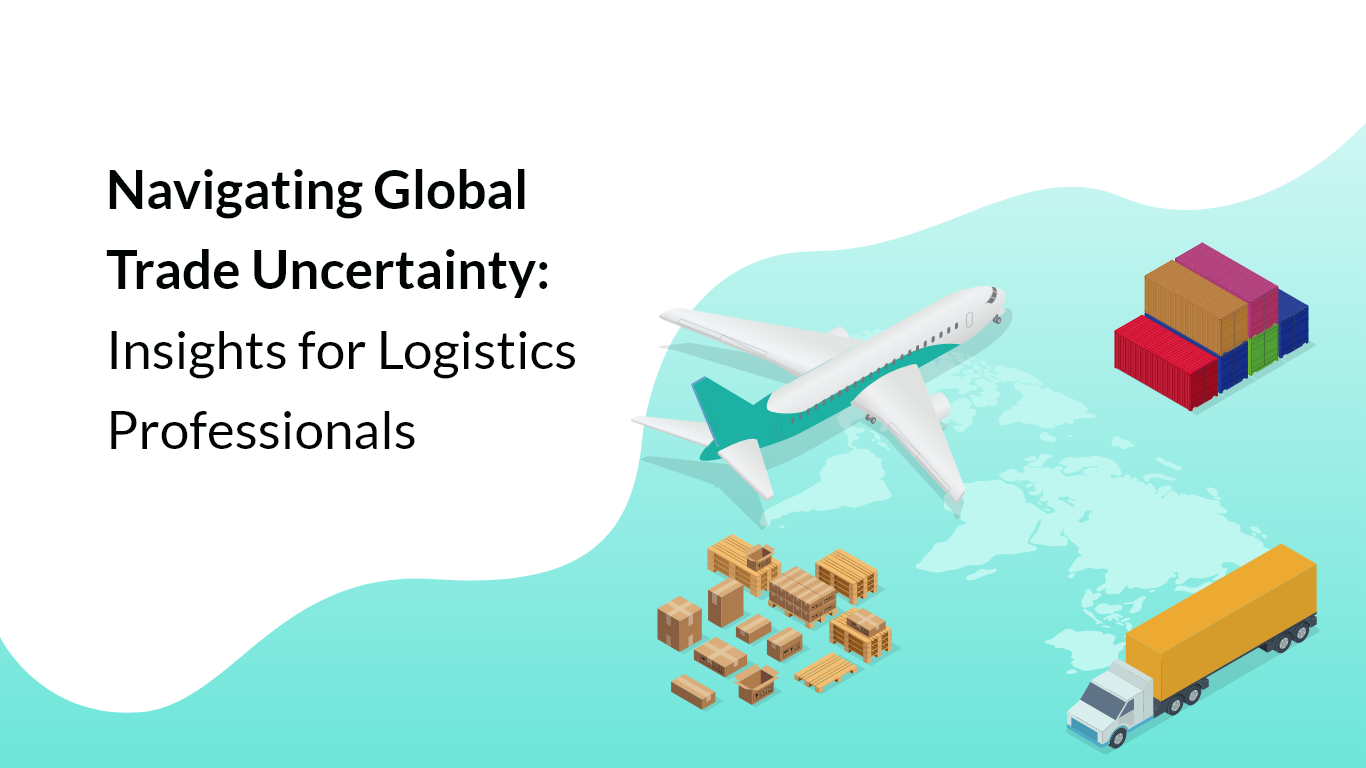In today’s interconnected world, global trade is a complex and dynamic landscape, influenced by a myriad of factors that create both challenges and opportunities for logistics professionals. Geopolitical shifts, evolving trade regulations, and market volatility are key elements that significantly impact global logistics operations. As the industry navigates these uncertainties, the role of advanced logistics software becomes increasingly crucial in mitigating risks and optimising supply chain efficiency. This article delves into the major factors affecting global logistics and explores how LogixPlatform can offer essential support in this turbulent environment.
Geopolitical Shifts
Geopolitical dynamics, such as changes in government policies, international relations, and economic sanctions, have a profound effect on global trade routes and logistics operations. Recent years have seen significant events such as Brexit, the US-China trade war, and ongoing conflicts in various regions, each contributing to disruptions in the supply chain.
- Impact on Trade Routes: Changes in political relations can lead to the redirection of trade routes, affecting transit times and costs. For instance, the rerouting of goods due to sanctions or tariffs can increase transportation expenses and delay deliveries. The Trade in Transition Global Report 2024 highlights that geopolitical instability has led to an estimated 12% increase in transportation costs globally.
- Regulatory Compliance: Geopolitical shifts often bring new regulations and compliance requirements. Logistics professionals must stay informed and adapt to these changes to avoid legal pitfalls and penalties. The report indicates that enhanced border controls have increased clearance times by 25% on average, necessitating more efficient documentation handling to mitigate delays.
Trade Regulations
The global trade environment is heavily regulated, with each country imposing its own set of rules and standards. Trade regulations can influence everything from tariffs and import/export restrictions to environmental and safety standards.
- Tariff Fluctuations: Changes in tariff policies can significantly impact the cost of goods and materials, influencing sourcing decisions and pricing strategies. Logistics providers must be agile in adjusting their operations to minimise cost implications. In 2023, tariff changes accounted for a 15% variance in the cost of goods for international shipments, influencing sourcing strategies for 65% of surveyed companies.
- Customs and Border Controls: Stringent customs procedures and border controls can cause delays and increase the complexity of international shipping. Efficient handling of documentation and compliance is essential to ensure smooth operations.
Market Volatility
Market volatility, driven by economic fluctuations, demand variability, and supply chain disruptions, presents another layer of uncertainty. Events such as the COVID-19 pandemic have underscored the vulnerability of global supply chains to sudden and severe disruptions.
- Demand Fluctuations: Unpredictable changes in consumer demand can lead to overstocking or stockouts, affecting inventory management and distribution plans. Logistics professionals need to be adept at forecasting and agile in their response. The pandemic resulted in a 40% spike in demand volatility, with logistics providers reporting significant challenges in maintaining inventory levels and meeting customer expectations.
- Supply Chain Resilience: Building a resilient supply chain that can withstand shocks and recover quickly is crucial. This involves diversifying suppliers, enhancing visibility across the supply chain, and implementing robust risk management strategies. Companies investing in diversified supplier bases and advanced risk management saw a 20% faster recovery from supply chain disruptions compared to those with less resilient structures.
The Role of Logistics Software Providers
LogixPlatform plays a pivotal role in helping businesses navigate the uncertainties of global trade. These platforms offer a range of tools and capabilities designed to enhance efficiency, compliance, and resilience in the supply chain.
- Enhanced Visibility and Tracking: Real-time tracking and visibility tools enable logistics professionals to monitor shipments, anticipate delays, and make informed decisions quickly. This visibility is crucial for managing risks associated with geopolitical shifts and market volatility.
- Regulatory Compliance Management: LogixPlatform can automate the compliance process by updating regulations and ensuring that all necessary documentation is in place. This reduces the risk of non-compliance and associated penalties.
- Data-Driven Decision Making: Advanced analytics and predictive modelling tools help businesses forecast demand, optimise routes, and manage inventory effectively. By leveraging data, logistics providers can mitigate the impact of market volatility and improve operational efficiency.
- Supply Chain Collaboration: Collaborative platforms facilitate better communication and coordination among all stakeholders in the supply chain. This improved collaboration can lead to more resilient and responsive logistics operations.
Conclusion
Navigating the uncertainties of global trade requires a strategic approach and the right tools. Geopolitical shifts, evolving trade regulations, and market volatility are challenges that logistics professionals must contend with regularly. However, with the support of LogixPlatform, businesses can enhance their agility, compliance, and resilience, ensuring smoother and more efficient global logistics operations.
By leveraging insights and data from comprehensive reports like the Trade in Transition Global Report 2024, logistics professionals can better understand and mitigate the complexities of global trade, driving sustained success in an unpredictable environment.
LogixGRID’s Role in Supporting Businesses
LogixGRID is a leader in providing innovative logistics solutions tailored to help businesses navigate the complexities of global trade. Its cloud-based platform offers a range of features designed to improve supply chain visibility, enhance operational efficiency, and ensure compliance with evolving regulations.
- Advanced Analytics: LogixGRID’s analytics tools provide deep insights into supply chain performance, enabling data-driven decision-making. This helps businesses anticipate market changes and adjust strategies accordingly.
- Comprehensive Compliance: The platform ensures that all regulatory requirements are met by automating documentation processes and keeping up-to-date with the latest regulations, reducing the risk of non-compliance.
- Scalability and Flexibility: LogixGRID’s solutions are scalable, allowing businesses to adapt quickly to changes in the market. Whether dealing with increased demand or adjusting to new trade routes, the platform supports seamless scalability.
- Integrated Systems: LogixGRID’s platform integrates various logistics functions, from warehouse management to transportation and delivery, ensuring a cohesive approach to supply chain management


